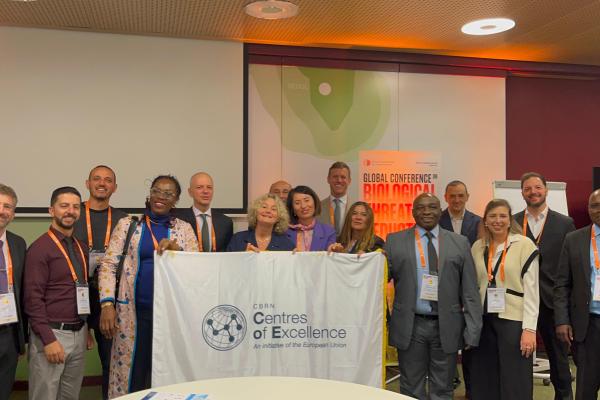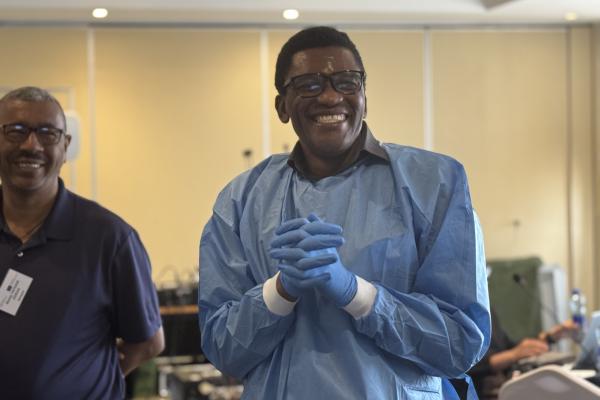The CBRN CoE Regional Secretariat for the Eastern and Central Africa region is located in Nairobi, Kenya at the Ministry of Health.
The Secretariat plays a major role in helping achieve the objectives of the CBRN CoE through ensuring a good level of cooperation and coordination among the eleven Partner Countries.The Regional Secretariat also provides support with the engagement of regional and international technical partners, potential donors and other stakeholders in the area of CBRN risk mitigation. It contributes to build local ownership and to a greater sustainability of the CBRN CoE network.
- Awareness raising for implementation of NAP
- Enhancing CBRN Legislative Framework
- Harmonized and Integrated approach to Biosecurity
- CBRN Risk assessment
- Illicit trafficking of Radiological and Nuclear materials
- Identification, Retrieval and Management of old and abandoned chemicals (including explosive precursors)
- Support the establishment and institutionalisation of inter-agency CBRN National Teams.
- Support Partner Countries in the development of CBRN National Action Plans.
- Facilitate exchange of experience between CBRN CoE Partner Countries.
- Support the definition of regional projects and national activities funded through CBRN CoE.
- Enhance ownership by Partner Countries in the region.
- Engage and coordinate with regional organisations to develop long-term collaboration.
- Reach out to and coordinate with international organisations and donors.
13 projects implemented in the region to date, guided by Partner Country priorities. Currently 3 projects ongoing:
- P99 Strengthening biosafety and biosecurity capabilities in Eastern and Central Africa.
- P94 On-site Technical Assistance to the EU CBRN Centres of Excellence Regional Secretariats
- P66 MEDISAFE Combating falsified medicines in Eastern and Central Africa
- Regional exchange and cross-border cooperation are a key success factor in the CBRN CoE network. Project 60 recently completed with a regional training in detection and identification of sources of radiation and retrieval of radioactive material. A simulated border crossing field exercise put the cooperation and knowledge or the participants into practice.
- Three county governments around the Kenyan capital requested the CBRN CoE to support them in a joint chemical incident response exercise. Through the facility of the On-Site technical Expert (OSA), the fire services, police and medical services identified the existing challenges and strength in their joint response.
- Substandard and falsified medical products (SFMPs) are a significant challenge to Africa. CBRN CoE Project 66 brought together experiences and lessons learned from the 11 participating countries and partnering international organisations. For example the recent regional seminar on identifying and controlling SFMPs, and to improve inter-agency cooperation at national and regional levels.
News from Eastern & Central Africa

At the WOAH Global Conference on Biological Threat Reduction, the EU CBRN CoE held a side event Leveraging the expertise of the EU CBRN Centres of Excellence to strengthen One Health approaches in reducing biological threats.
- CoE Region
- AAF - African Atlantic Façade
- CA - Central Asia
- ECA - Eastern and Central Africa
- GCC - Gulf Cooperation Council Countries
- MIE - Middle East
- NAS - North Africa and Sahel
- SEA - Southeast Asia
- SEEE - South East and Eastern Europe

Dar es Salaam played host to a powerful convergence of biosafety expertise and regional collaboration. From 15-17 July 2025, 22 biosafety officers, laboratory managers, and regulators from across East and Central Africa came together for a Regional Workshop on ISO 35001:2019.
- CoE Region
- ECA - Eastern and Central Africa

The concept for this new global programme was developed with EU support and is now being tested in several countries, most recently in Uganda, with strong results
- CoE Region
- ECA - Eastern and Central Africa


